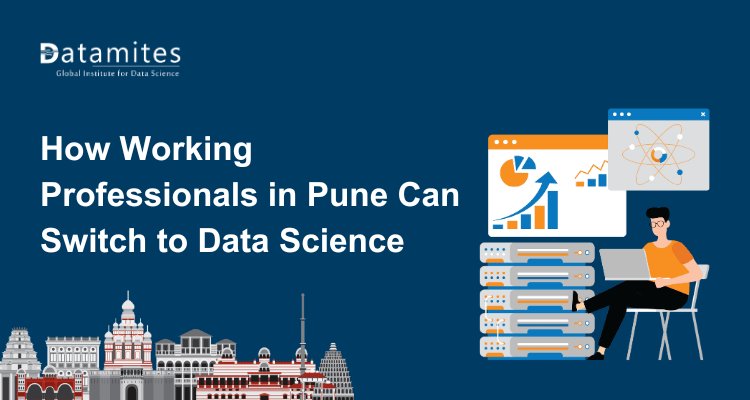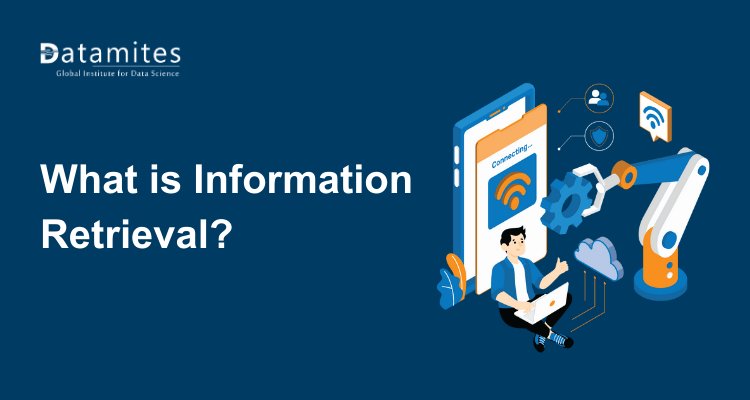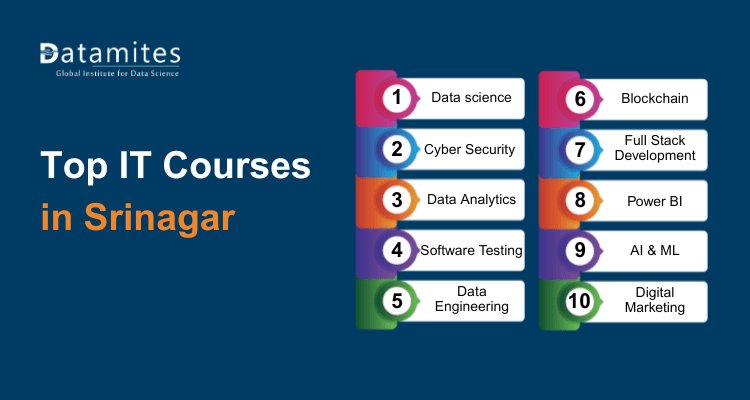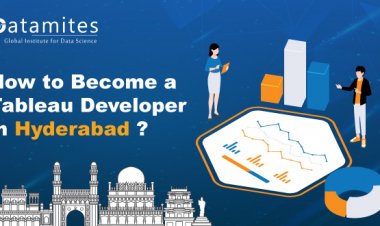Why Python is Essential for Data Science and AI
Python is a versatile and powerful programming language that has become essential for data science and AI due to its simplicity, extensive libraries, and strong community support. Its ease of use and wide array of tools make it ideal for data manipulation, analysis, and machine learning tasks.
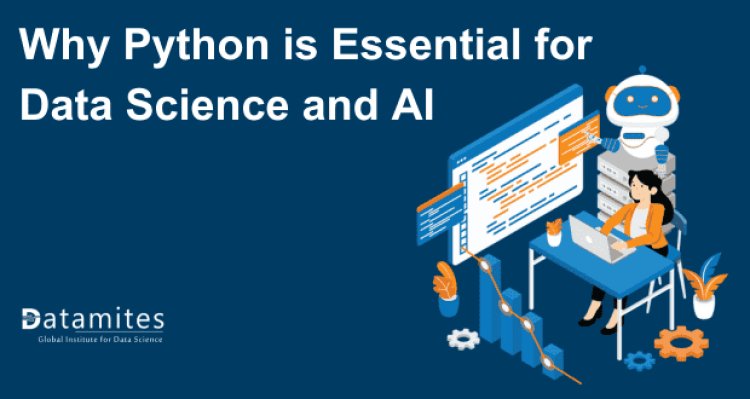
Did you know that Python, created in the late 1980s to offer a simpler yet more powerful programming language, now dominates as the leading language in Data Science and Artificial Intelligence (AI)? According to the 2023 Developer Survey by Stack Overflow, a staggering 66% of data scientists prefer Python for their work. This dominance is not merely a matter of popularity; it stems from Python's unparalleled versatility and efficiency in handling complex data tasks, making it the linchpin of modern data-driven industries.
In this blog post, we'll delve into why Python has become indispensable in the fields of Data Science and AI, exploring its key features and real-world applications that continue to shape the future of technology.
Python's Versatility in Data Science
Python's appeal in Data Science stems from its versatility and simplicity. It provides a rich set of tools and libraries that facilitate every stage of the data analysis pipeline, from data cleaning to visualization. Here are key reasons why Python excels in Data Science:
- Libraries Galore: Python boasts robust libraries like Pandas for data manipulation, NumPy for numerical computations, and Matplotlib for data visualization.
- Ease of Learning and Use: Its simple syntax and readability make Python accessible to beginners and efficient for experienced programmers alike.
- Scalability: Python is suitable for both small-scale analysis and large-scale data processing because it supports handling data at scale effectively.
- Integration: Python seamlessly integrates with various languages and tools, enhancing its versatility in diverse data science workflows.
Python's leading role in data science is further strengthened by the wide range of specialized Python training certifications, enabling professionals to fully utilize its capabilities. Enrolling in a reputable Python training or obtaining a Python certification can significantly boost one's proficiency and career prospects in this field.
Refer these articles:
Python Libraries in Data Science
The strength of Python in Data Science lies in its extensive library ecosystem, catering to specific needs across various domains:
- Pandas: Perfect for data manipulation and analysis tasks, providing robust data structures and operations.
- NumPy: Facilitates efficient numerical computations with multi-dimensional arrays and mathematical functions.
- Scikit-learn: A go-to library for machine learning tasks, providing tools for data mining and data analysis.
- Matplotlib and Seaborn: Essential for creating static, animated, and interactive visualizations in Python.
These libraries not only streamline data workflows but also foster innovation by enabling rapid prototyping and experimentation in data-driven projects.
Python's Role in Artificial Intelligence
In the realm of Artificial Intelligence, Python reigns supreme due to its flexibility and extensive support for AI-related tasks. Here's why Python is essential for AI:
- Versatile for AI Applications: Python supports a wide range of AI applications, including natural language processing (NLP), computer vision, and deep learning.
- Popular Frameworks: Leading AI frameworks like TensorFlow and PyTorch are predominantly written in Python, offering high-level APIs for building and training neural networks.
- Community Support: Python’s vibrant community continuously develops and maintains libraries and tools that drive AI innovation.
Python's adaptability in AI is further enhanced by specialized Python course certifications focused on AI development. These programs equip aspiring AI professionals with the skills to leverage Python effectively in cutting-edge AI applications.
Refer these articles:
- Comprehensive Guide for Python and R Programming
- Guide to Python Programming Career
- Do You Prefer Python or Java?
Python Libraries in Artificial Intelligence
Python’s dominance in AI is underscored by its comprehensive library ecosystem tailored for AI tasks:
- TensorFlow: A robust open-source framework widely acclaimed for its adaptability and capacity to handle both machine learning and deep learning tasks with ease.
- PyTorch: Preferred for its dynamic computational graphs and ease of use in building neural networks.
- NLTK: Essential for NLP tasks such as tokenization, stemming, tagging, parsing, and semantic reasoning.
- OpenCV: Widely used for computer vision tasks, offering a comprehensive set of functions to process visual data.
These libraries empower AI practitioners to develop sophisticated models and solutions across diverse domains, from healthcare to finance and beyond.
Advantages of Using Python in Data Science and AI
The advantages of using Python extend beyond its technical capabilities. Here are some key advantages:
- Community Support: Python has a vast and active community that contributes to libraries, frameworks, and resources, ensuring continuous improvement and support.
- Flexibility and Scalability: Python’s versatility allows seamless integration with existing systems and scales effectively from prototype to production.
- Interdisciplinary Applications: Python’s applicability spans multiple disciplines, fostering interdisciplinary collaboration in data science and AI projects.
- Cost-Effective Development: Python’s open-source nature and availability of free libraries minimize development costs, making it economically viable for startups and enterprises alike.
These advantages position Python as the preferred choice for businesses aiming to harness the power of data and AI to drive innovation and gain a competitive edge.
Refer these articles:
- What Is AI Engineer Course?
- What is Certified Data Scientist Course?
- What is Datamites Certified Data Analyst Certification Course?
Job Market Trends for Python in Data Science and AI
The demand for Python skills in Data Science and AI continues to surge, reflecting its pivotal role in modern technological advancements. Key trends include:
- Increased Job Opportunities: Organizations across industries are actively seeking professionals proficient in Python for data analysis, machine learning, and AI development roles.
- Salary Premium: Python developers in Data Science and AI command competitive salaries due to their specialized skills and high demand.
- Skill Diversification: Professionals are upskilling in Python through specialized courses and certifications to meet evolving industry demands.
- Remote Work Accessibility: Python’s versatility and remote work capabilities make it attractive for professionals seeking flexible work options.
As the digital transformation accelerates, proficiency in Python remains a valuable asset, opening doors to rewarding career opportunities in data-driven fields.
Python’s ascendancy in Data Science and AI is driven by its versatility, robust library ecosystem, and community support. Whether you’re analyzing big data sets, developing AI models, or visualizing complex trends, Python offers the tools and resources to excel. Embracing Python through targeted courses and certifications not only enhances your skill set but also positions you at the forefront of innovation in today’s data-driven world.
By investing in Python education, you equip yourself with the expertise needed to thrive in the dynamic landscapes of Data Science and AI, ensuring a prosperous career path filled with opportunities for growth and impact.
DataMites offers a comprehensive Python course designed to equip learners with essential programming skills and knowledge in Python. This course is suitable for beginners and experienced professionals looking to enhance their programming expertise. The curriculum covers fundamental concepts of Python, including variables, data types, control structures, functions, modules, and file handling.
DataMites is a leading training institute renowned for its extensive range of courses in data science, analytics, and related fields. Dedicated to providing high-quality education, DataMites offers programs that cater to both beginners and experienced professionals looking to advance their skills in various domains, including data analytics, machine learning, artificial intelligence, Power BI and data engineering.
DataMites Institute offers an in-depth Python course accredited by leading global certification bodies. The program covers fundamental Python concepts, hands-on projects, and real-world applications to ensure you’re ready for the industry. With expert-led training, you'll be prepared for careers in software development, data analysis, and automation, and earn a globally recognized certification to boost your career prospects.

